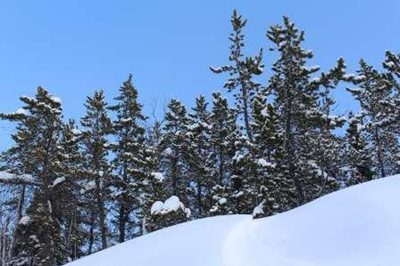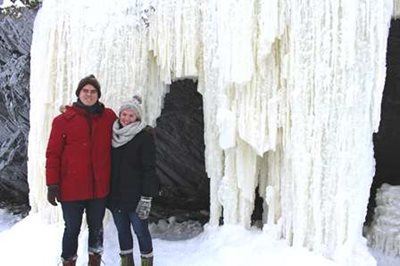There are few things I like in this world as much as being cozy and warm. So it might seem weird that I decided to take a winter vacation in Yellowknife. But, in a few days that’s where I’m headed.
Before the trip:
Okay, I will admit I’m pretty nervous about the cold but I am hoping it will be worth it for the adventure. I decided the best way to calm those nerves was to learn as much as I can about how to stay safe and warm in the freezing cold, and what to do in the event of a cold-related emergency. So I chatted with Don Marentette, the Director of First Aid Programs at the Red Cross, and also something of a cold weather enthusiast.

The first thing Don recommends is that I pick up a copy of the
Wilderness and Remote First Aid Field Guide. The guide is made to be durable and fit nicely in with your supplies when you’re heading out into nature.
I also took a moment to review the
signs and symptoms of cold-related emergencies. Don suggests when we’re actually out in the cold we should use a “buddy system” when it comes to extreme cold – every 15 – 20 minutes just take a moment to check out your buddy. Is their skin red or showing other signs of frostbite? Are they speaking clearly and alertly?
In the spirit of packing right, I also am sure that I’ve got lots of layers – it’s important to have materials that breathe well, because working up a sweat can mean your clothing gets damp and that will make you cold. I also never remember to pack enough socks – not this time, my bag is mostly socks I think.
During the trip:
Full disclosure – there is sort of a “heat wave” when we get to Yellowknife. It’s about -17, which is surprisingly comfortable when you’ve got the right amount of clothing on.
We went on a great hike, and were even a little overdressed. One day was only -10 and I actually saw a person wearing shorts (but we would not recommend that!)

The weather got a little colder as the week went on. This was when one of Don’s tips really came in handy for me, “A lot of us don’t want to admit when we’ve had too much because we don’t want to ruin the fun,” he said, “but it’s important to speak up.”
It’s true, it can be really hard to speak up when you need a break to get warm. But I was already really shivering, which meant my body was already
too cold.
Another tip that came in handy was to make sure when we were going out for outdoor fun we were well-rested and had eaten enough (and had snack supplies). Even though this was all recreational, it’s important to remember there are risks when you go into elements like this, so it is important to be in the best condition possible. It’s also important you know where you’re going and people know too – it’s important to bring a fully-charged cell phone, but you can’t count on getting a signal and in very cold weather your phone may not function.
Okay, so in the end we were more prepared for frigid weather than necessary, but I would always rather be over prepared than learning lessons the hard way.